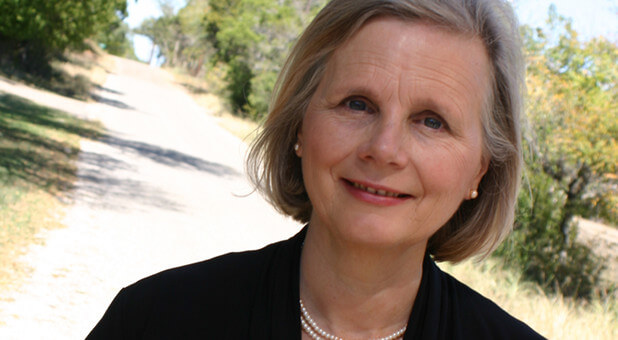Tony and I were relaxing when his cellphone rang. It soon became apparent from his end of the conversation that the person the other end was interested in publishing a book called An Army of Ordinary People that I wrote some time ago.
“Put it on speaker,” I whispered to Tony, eager to hear what was being offered.
The conversation continued. Then the person on the other end said, “Of course, we’ll put both your names on the front cover. This book is far too important to have been written by a woman!”
It was at this point that I lost my sanctification.
It wasn’t that I minded Tony’s name on the book—we’ve written together before. It was the insinuation that a woman could not write anything of significance that frustrated me. (Thankfully, An Army of Ordinary People has been rewritten and updated and is being republished by Tyndale House Publishers.)
Sadly, even in these days when our society generally recognizes women as equals, the attitude toward women in the church is often medieval. Over the years, I remember being told:
- A woman can lead—she just does it through her husband.
- A woman is equal to a man; it’s just that her role is different and, by implication, not as important—kind of like George Orwell’s “All animals are created equal, but some animals are more equal than others,” in Animal Farm.
- God will use a woman—but only when there is no man available to do the job (my personal favorite!).
Christendom has long been patriarchal in nature. For the most part, I don’t believe this is deliberate misogyny. But a patriarchal interpretation of the Scriptures has led to the belief that women cannot hold any position of strategic leadership within the body of Christ.
For some women (as for some men), this does not matter. However, God has placed in the hearts of many of us women a longing to hear His voice, to think strategically and to lead out—not in any lording-it-over sense, but in humble service to His body.
In many churches, women are limited in what they are allowed to do. They can make the coffee (actually a specifically male role, as exemplified by the book of He Brews) and teach a children’s Sunday school class. But it is what women are not allowed to do that is the problem.
In many situations, women are not allowed any role that carries authority. For example, I have a close friend who has been trained to teach a disciple-making course. But sometimes, when a church hears one of the presenters of the course is going to be a woman, they refuse to allow her to come.
God has given me certain desires and gifts that have always led me to be a strategic thinker. I love listening to God, particularly in the context of a group that is seeking His face for what He is doing within the kingdom. As a physician, I was capable of making life-and-death decisions, but for years I was not allowed to take any kind of leadership role in church because of my gender. This was a huge source of sadness for me.
Thankfully, the Holy Spirit is beginning to change all of this. There is an increasing understanding that the Scriptures do not prohibit women from leadership roles. God is using women all over the world to extend His kingdom. Women have started over 80 percent of the house churches in China.
A similar situation exists in Dr. Yonggi Cho’s church in Korea, where again women lead over 80 percent of the cell groups of the largest church in the world. Think of Heidi Baker, who with her husband, Rolland, is responsible for more than 10,000 churches in Mozambique and other African countries. In India recently, I met a middle-aged housewife who with the team she has trained has started more than 6,000 churches.
What can God do with a woman who is yielded to Him?
Adapted from Felicity Dale‘s blog, Kingdom Women. Felicity is the author of numerous books, including Simply Church. She is an an advocate for women in the church and trains people to start simple, organic house churches around the world.











































